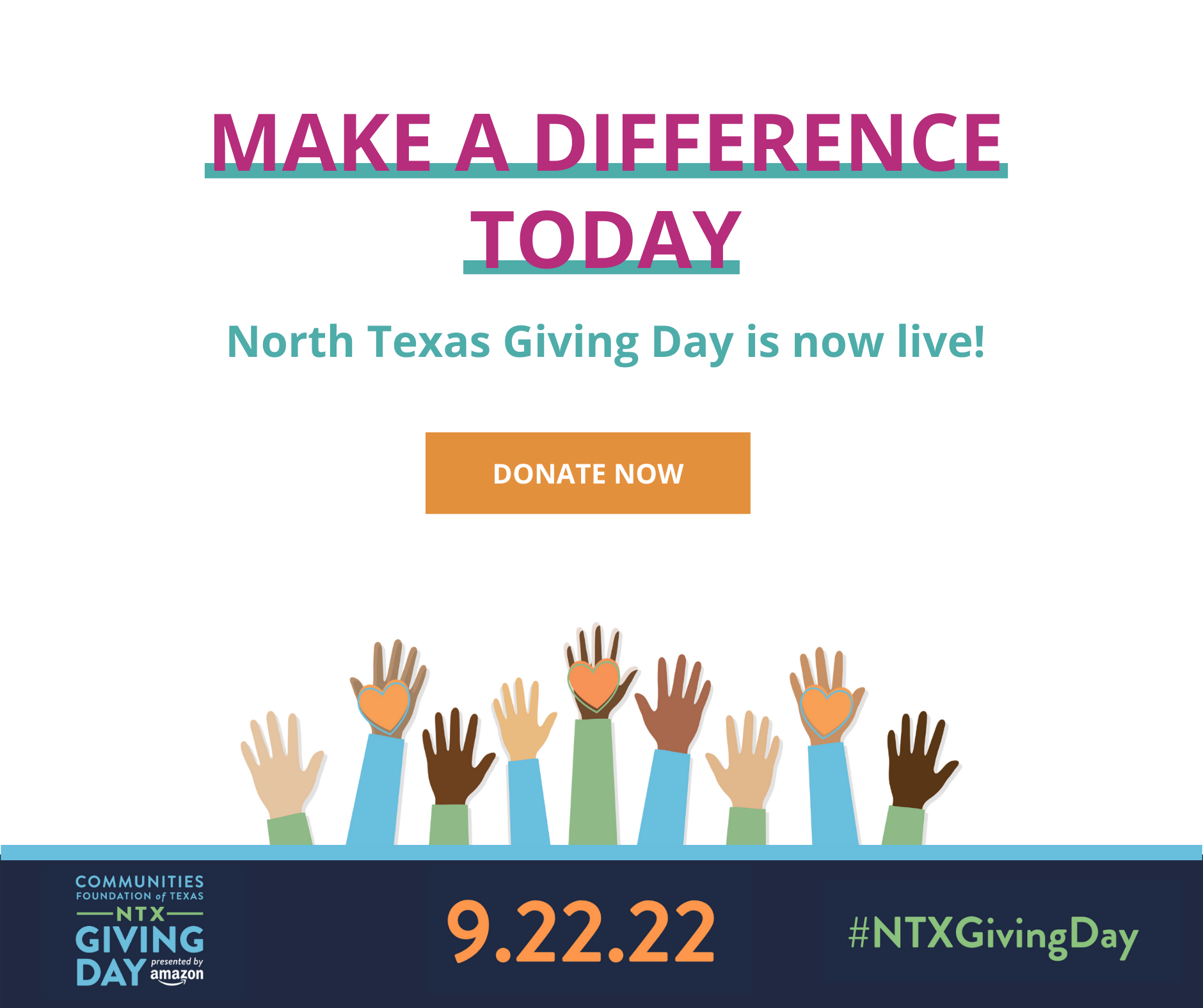DID YOU KNOW?
- Four children die from abuse/neglect each week, and 80 percent of victims are 3 years of age and younger.
- 181 children are confirmed as abused/neglected every day, and the highest rates occur in children under age 5.
- Evidence-based home visiting programs can reduce child maltreatment by up to 48 percent and have a positive return for each dollar invested.
- Currently, only 3.5% of families with the highest need have access to proven prevention programs.
Welcome to the second part of our look at how child protection legislation fared in the 86th Texas Legislature. We began this series in May with our top-priority bills. This begins the first of three deeper dives into specific subject areas. This post is about Prevention and Early Intervention legislation; it will be followed by Child Protection Systems and will conclude with Mental Health and Trauma.
For a PDF version of this blog post, click here.
Prevention and Early Intervention Background
The Adverse Childhood Experiences (ACEs) Study – as well as decades of subsequent, validated research – has made clear that the impact of severe childhood adversities, including child maltreatment, is a public health crisis.
In the absence of supportive relationships and environments, chronic and compound ACEs increase the likelihood of negative behavioral, educational, health and economic outcomes. Prevention strategies can reduce the prevalence and impact of ACEs and increase a child’s opportunity for cognitive and emotional development, productivity, health, and economic wellbeing.
Prevention efforts fall across a spectrum that includes:
| Primary Primary prevention focuses on reaching families before the first occurrence of child maltreatment. | Secondary Secondary prevention focuses on efforts to prevent maltreatment among families considered to be at high risk. | Tertiary Tertiary prevention focuses on mitigating the negative effects and prevent re-occurance in families where maltreatment has already occurred. |
Evidence-based in-home parenting programs (known as home visiting) have proven to be the most effective and efficient model for prevention. These programs connect expectant and new parents who enroll voluntarily with a trained nurse, social worker, or early childhood specialist who promotes health, child development, parenting skills, education, and employment. By intervening to prevent adversity and build resilience during a child’s most critical years of neurodevelopment, in-home parenting programs impact outcomes across multiple domains and generations.
Evidence-based programs currently operating in Texas include AVANCE, Early Head Start, Family Connects, Healthy Families America, Home Instruction Program for Preschool Youngsters, Nurse-Family Partnership, Nurturing Parenting, Parents as Teachers, SafeCare, Systematic Training for Effective Parenting, and Triple P- Positive Parenting Program.
While some communities have been able to initiate programs with private and/or local funds, most in-home parenting programs implemented in Texas are funded through the Prevention and Early Intervention Division at the Department of Family and Protective Services. In 2018, funding was available to provide approximately 16,000 families with evidence-based in-home parenting support; however, 423,000 families in Texas have young children and three or more risk factors. Our goal is to continue working until many more of those families can access these beneficial programs.
ACEs and trauma do not dictate the future of a child. Children with protective factors (e.g. healthy attachment to parents, access to community resources, and supportive school and home environments) can build the resilience needed to thrive despite adversity. Evidence-based and effective solutions can strengthen families and help ensure that children start with a secure foundation of health and safety.

prevention in the 86th texas legislature
Top-Priority Bills passed
House Bill 1 – The General Appropriations Act
Champions – Sen. Jane Nelson and Rep. John Zerwas
In response to research, federal initiatives, and best practices, the landscape around prevention funding has changed within the past couple decades. The ACEs research makes clear the public health ramifications of severe adversities in childhood. Emerging brain science continues to demonstrate the importance of the development that happens in the first five years of a child’s life. This has created new urgency and a growing and diverse group of stakeholders who are invested in improving access to proven programs. The federal Family First Prevention Services Act demonstrates an increasing prioritization by the federal government in programs that provide evidence-based services to ensure that, when possible, children can remain safely at home. Protecting a child’s development by strengthening families to increase resilience and protective factors, and empowering communities to offer needed supports before a crisis occurs, have become the clear path forward.
Each session, TexProtects prioritizes increased investments in primary, evidence-based in-home parenting programs. Despite cuts to the Health and Human Services budget overall, the Legislature included funding to maintain Project HOPES (Healthy Outcomes through Prevention and Early Support) and the Nurse-Family Partnership (NFP) Programs and appropriated an additional $4.3 million to expand those programs.
| Evidence-Based Prevention | 2020-21 Base Budget | Additional Investment |
|---|---|---|
| HOPES | $39.9 million General Revenue/All Funds | $1.5 million |
| NFP | $30.2 million All Funds ($5.6 million General Revenue) | $2.9 million |
| Total | $70.1 million All Funds | $4.3 million |
Healthy Outcomes Through Prevention and Early Support (HOPES) is a prevention approach developed to be a flexible and community-based solution to child abuse and neglect in high-risk counties by increasing protective factors of families served. It is currently serving families in 55 counties with children ages 0-5 at risk for child abuse and neglect. The evidence-based programs chosen by the communities each have proven positive outcomes across multiple domains and returns on investment that range from $1.26 to $8.08.
The Nurse-Family Partnership Program is an evidence-based, community health approach with over 40 years of evidence currently serving families in 43 counties. NFP works by having specially trained nurses regularly visit young, first-time expectant moms and fathers, starting early in the pregnancy, continuing through the child’s second birthday. For every dollar invested, there is a return on investment of $5.70 including savings on medical care, child welfare, special education, and criminal justice.
Senate Bill 355
Champions – SEN. ROYCE WEST AND REP. STEPHANIE KLICK
SB 355 directs the Department of Family and Protective Services to develop a strategic plan to leverage federal funds made available through the Family First Prevention Services Act to increase access to mental health care, substance use treatment and in-home parenting programs that can prevent child maltreatment and keep children with their families. This will result in cost savings to the state and better outcomes for Texas children. For the first time, federal dollars previously only available for children in the foster care system will be made available to fund evidence-informed and community-based early interventions so that children can remain safely at home when possible rather than placing them in foster care. These prevention strategies address key drivers of child abuse and neglect: substance use, mental health issues, and parenting skills. Such services build on the knowledge that most children can be safely protected and remain within their own homes when parents are equipped with appropriate support and opportunities to care for their children.
SB 708
Champions – Sen. judith zaffirini and rep. john Raney
SB 708 requires the Health and Human Services Commission to use existing procedures to collect, make publicly available, and report to the Legislature data on child safety in licensed child-care centers. Data must include violations that impact the health, safety, and well-being of children as well as information on the number of children and caregivers in each classroom. This data will allow lawmakers, providers, and parents to make better decisions to ensure the safety of children in care.
TexProtects Goal – Provide training to promote prevention and early intervention
HB 111 – Rep. mary Gonzáles / sen. pat fallon
HB 111 requires that existing child abuse training for school staff must also include information on students with significant cognitive disabilities. Persons with disabilities are victimized at much higher rates than those without disabilities and are much less likely to report abuse.
HB 403 – rep. senfronia thompson / sen. joan huffman
| HB 403 requires that the board of trustees and superintendent of a public school district complete one hour of training on identifying and reporting potential victims of sexual abuse, human trafficking, and other maltreatment of children every two years. |
HB 2059 – Rep. Cesar Blanco / Sen. Larry Taylor
| HB2059 equips health care practitioners who provide direct patient care with the training needed to help detect potential victims of human trafficking and provide them with adequate care, including referring them to additional support services. Ensuring that health care providers are knowledgeable and adequately prepared is vital in combating human trafficking in Texas. Approximately 80 percent of human trafficking victims are women, and health care providers are often the first professionals to have contact with trafficked women and girls. |
TexProtects Goal – Improve Maternal and Newborn Healthcare
HB 25 – Rep. Mary Gonzáles / Sen. Judith Zaffirini
HB25 creates a pilot program to allow pregnant and postpartum women utilizing the Medicaid medical transportation program to travel with their children to pregnancy-related appointments. Women enrolled in the STAR Medicaid managed care program during pregnancy or after delivery often miss prenatal or postpartum appointments because the medical transportation service program does not provide an option for women to bring their children along with them to appointments. This pilot could increase access to health care during this critical time for mom and baby.
HB 253 – Rep. Jessica Farrar / Sen. Lois Kolkhorst
| HB253 requires the Health and Human Services Commission (HHSC) to develop and implement a recurring five-year strategic plan to improve access to postpartum depression screening, referral, treatment, and support services. Postpartum depression (PPD) affects 1 in 9 mothers nationally, according to the Centers for Disease Control. PPD can affect a mother’s capacity to attach and interact with her child. This can disrupt healthy development and family functioning. Depression is treatable and most mothers improve with access to adequate support. |
HB 405 – Rep. Ina Minjarez / Sen. Lois Kolkhorst
| HB405 designates June as Neonatal Abstinence Syndrome (NAS) Awareness Month.Neonatal Abstinence Syndrome (NAS) is a group of conditions caused when babies withdraw from certain drugs that they have been exposed to before birth. Rates of NAS in Texas increased by more than half between 2010 and 2015. This bill would increase public awareness and access to information and resources to decrease stigma and encourage mothers to seek help. |
HB 1576 – Rep. Dade Phelan / Sen. Dawn Buckingham
| HB1576 allows the Health and Human Services Commission (HHSC) and Medicaid managed care organizations to contract with transportation network companies (TNCs) and transportation vendors such as Uber and Lyft for the delivery of nonemergency medical transportation. The medical transportation program currently provides non-emergency transportation services to and from covered health care services — based on medical necessity — to recipients under Medicaid, the children with special health care needs program, and indigent cancer patients program who have no other means of transportation. This would increase options and flexibility and decrease the use of emergency medical transportation resources for non-emergency transport. |
HB 1651 – REP. MARY GONZÁLES / Sen. Carol Alvarado
| HB1651 requires the Commission on Jail Standards to prohibit the use of restraints for women who are incarcerated during pregnancy and 12 weeks postpartum unless clearly required for the health and safety of the mother or staff. Shackling pregnant inmates is banned in Texas state prisons and was recently outlawed at the federal level. This bill extends the same protection to the inmates of our state’s county jails. The bill also requires an annual report on any use of restraints on pregnant and post-partum women. |
SB 436 – Sen. Jane Nelson / Rep. Four Price
SB436 requires the Department of State Health Services (DSHS) to collaborate with the Maternal Mortality and Morbidity Task Force to develop and implement initiatives to improve screening and continuity of care for women with opioid use disorder, as well as newborns with neonatal abstinence syndrome, while increasing access to medication-assisted treatment and decreasing the number of opioids prescribed before, during, and following delivery. A report on these initiatives is due to the legislature by December 2020.
SB 748 – Sen. Lois Kolkhorst / Rep. Sarah Davis
| SB748 would create a general revenue dedicated account to fund newborn screenings conducted by the Department of State Health Services (DSHS). The public health laboratory at DSHS tests 400,000 infants per year for 53 disorders or medical conditions. Dedicated funds could be used to maintain the lab and add additional screenings to the panel to meet federal requirements. |
SB 750 – Sen. Lois Kolkhorst / Rep. Eddie Lucio III
| SB 750 seeks to maximize Texas’ efforts to address maternal mortality as detailed by the Health and Human Services Commission’s report, State Efforts to Address Materna Mortality and Morbidity in Texas, by improving access to healthcare during the prenatal and postpartum period for women enrolled in the Healthy Texas Women Program. This bill also renames the Maternal Mortality and Morbidity Task Force as the Texas Maternal Mortality and Morbidity Review Committee and extends its work until 2027. |
TexProtects Goal – Increase Access to High-Quality Early Care and Education
HB 3 – Rep. Dan Huberty / Sen. larry Taylor
| HB 3 creates an early education allotment to fund full-day Pre-k for eligible students, provides additional funding for districts with high concentrations of poverty, increases funding per student, and provides funding for extended summer instruction. |
HB 680 – Rep. Joe Deshotel / Sen. Kirk Watson
| HB 680 requires the Texas Workforce Commission to assess and report the information on the quality and types of childcare being used by families receiving childcare subsidies. This information will include the average cost of childcare and the total number of providers and children participating in the state’s quality rating system, Texas Rising Star. The Texas Workforce Commission (TWC) administers a federal program that provides childcare subsidies to low-income families so their parents can work or attend workforce training. The data collected can help decision makers better improve access to high quality care. |
SB 1679 – Sen. Royce West / Rep. John Turner
| SB 1679 authorizes children at the age of three who were eligible for enrollment in a free Pre-k class to remain eligible for enrollment for the following school year. This will eliminate confusion and the burden on families that can result in children not being enrolled. |
TexProtects Goal – Increase Safety for Children in Childcare
SB 568 – Sen. Joan Huffman / Rep. Greg Bonnen
| SB568 transfers certain regulatory authority over childcare facilities and family homes from the Department of Family and Protective Services (DFPS) to the Health and Human Services Commission (HHSC). The bill creates a safety training account of dedicated funds, requires liability insurance unless it is cost-prohibitive, and establishes safe sleeping standards. A family home is a caregiver who provides regular care in their own residence for six or fewer children who are younger than 14, excluding children who are related to the caretakers. |
SB 569 – Sen. Joan Huffman / Rep. Greg Bonnen
| SB569 transfers regulatory authority for listed family homes from the Department of Family and Protective Services (DFPS) to the Health and Human Services Commission (HHSC). The bill requires HHSC to adopt minimum standards for listed family homes, requires liability insurance unless it is cost-prohibitive, and requires certain training like safe sleep training. The bill requires the HHSC to inspect listed family homes whenever the commission receives a complaint. Listed family homes are adult caregivers that provide care in their own home for compensation for up to three children unrelated to the caregiver. |
SB 706 – Sen. Kirk Watson / Rep. Bobby Guerra
| SB706 requires there be an investigative unit within the childcare licensing division at the Health and Human Services Commission to identify childcare facilities operating without a license, certification, registration, or listing and initiate appropriate enforcement actions against those facilities. |
Missed opportunities for prevention and early intervention
Cross Sector Collaboration to Prevent Adverse Childhood Experiences

Research conducted by the Centers for Disease Control, the National Institutes of Health, the American Academy of Pediatrics, and others has made clear that ACEs are prevalent and can have lifelong consequences on health and behavior. Currently, prevention efforts in Texas are spread across multiple agencies. Communities do not have access to the informaiton and resources they need to make strategic decisions toward safer and healthier families. HB 4183 would have facilitated a cross-agency strategic planning process to better coordinate statewide data and initiatives and give communities a better toolkit for providing services that can strengthen families and prevent trauma. The bill passed in the House but not in the Senate.
Strengthen ECI

Early Childhood Intervention (ECI) is a statewide program within the Texas Health and Human Services Commission for families with children from birth up to age 3 who have developmental delays, disabilities, or certain medical diagnoses that may impact development. ECI services recipients can access needed therapies and be school-ready. The agency made a $72 million request for the funds needed to keep ECI sustainable; however, the budget appropriated only $31 million. HB 12 would have strengthened the ECI program by addressing prior authorizations, requiring health benefit plans to cover services, and creating a tele-health pilot and ombudsman office. The bill passed the House but did not move in the Senate.
Extend Medicaid Coverage for Women Postpartum

Texas has the nation’s worst uninsured rate for kids AND the nation’s worst uninsured rate for women of childbearing age — with often devastating consequences for moms and babies. Extending Medicaid coverage for women postpartum up to 12 months post-child birth would have addressed the first recommendation from the state’s Maternal Mortality and Morbidity Taskforce; however, the issue faced significant challenges prior to House passage and was not referred to committee in the Senate.
Strategically Expand Proven Prevention Programs

While we are relieved to see continued investment in evidence-based child abuse prevention programs, we still have a long way to go. HB 1549 in the 85th legislative session directed the department to develop a plan to take these programs to scale in order to impact statewide outcomes. Current investments are only providing services to 3.5% of those families in highest need. In order to move the needle, Texas needs to make strategic investments that outpace population growth and inflation and can move us toward a reality in which at least 30% of families in need have access to services.



